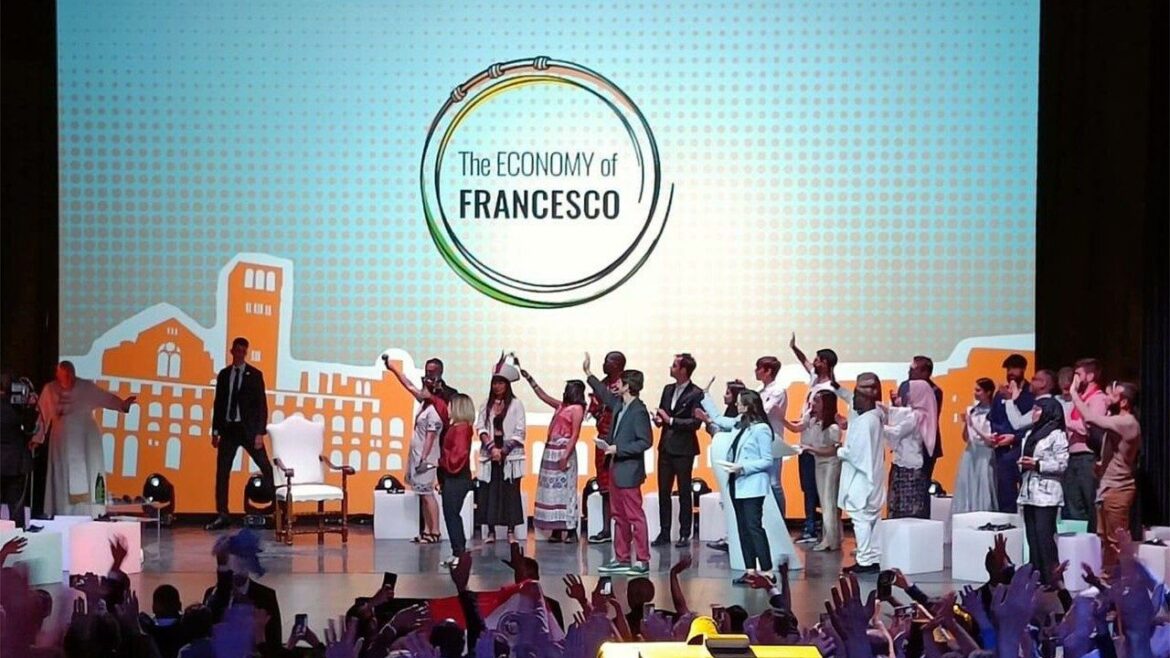
From 28 to 30 November, in Castel Gandolfo, Restarting the Economy — the global meeting promoted by The Economy of Francesco — will take place. An international event aimed at rethinking the economy in light of the Jubilee, focusing on social justice, care for the Earth, and freedom from debt.
By Luca Iacovone
What happens when the economy stops? We’re not talking about stock indexes or macroeconomic data, but about the deeper orientation of our economic systems: the meaning we assign to them, the direction they take us.
Stopping can seem uneconomic. And yet, the biblical Jubilee tells us just that: a time when mechanisms of ownership are interrupted, debts are forgiven, the land rests, and the enslaved are set free. A time that overturns usual logic to remind us that the economy is a tool, not a goal.
What if that ancient Jubilee holds traces of another possible economy? One that acknowledges limits, that doesn’t consume time or people, that makes room again for care and relationships.
An economy that slows down to care for the Earth, that frees labor from exhaustion, that sees debt not as punishment but as a wound to be healed. An economy that rediscovers the value of enough—not only measured in growth, but in the capacity to endure, to share, to let go.
This is the vision behind Restarting the Economy, the global gathering promoted by The Economy of Francesco, taking place in Castel Gandolfo from November 28 to 30, 2025.
The Economy of Francesco is an international network of young economists, entrepreneurs, and changemakers, launched in 2019 at the invitation of Pope Francis. It brings together people from every continent who are committed to building a more just, inclusive, and sustainable economy—starting from real, local experience.
This won’t be a traditional conference, but an international laboratory of listening, dialogue, and imagination. A place where young people from diverse backgrounds will journey together around three key words: rest, liberation, restoration. This collective reflection is rooted in a living community that doesn’t only share ideas but tests them daily by building new economic models in their own contexts.
In the days leading up to the gathering, several voices from The Economy of Francesco community will accompany this journey with a series of short editorials published on Vatican News. Each one will seek to bring the present into conversation with the spirit of the Jubilee, starting from some pressing questions: What does it mean today to liberate work? Is it still possible to forgive debt? Does the Earth have a right to rest?
Each voice will offer a different perspective, but they all spring from the same intuition: that the Jubilee, with its ancient gestures, can offer new coordinates for navigating today’s crises. From ecological justice to the dignity of labor, from debt relief to the spirituality of limits, each editorial will be a small exercise in economic discernment.
There may not be one perfect economy, but there are gestures that can help orient it toward justice. And in the end, this is what the Jubilee reminds us: that stopping is not a waste of time—it’s the beginning of a choice.

